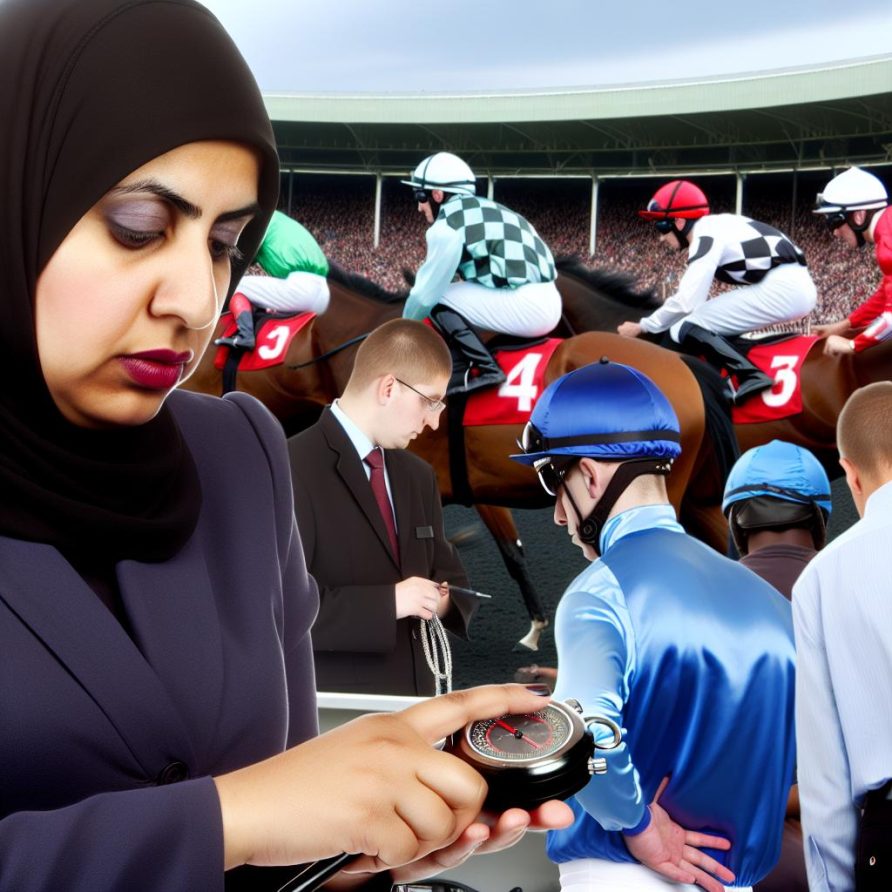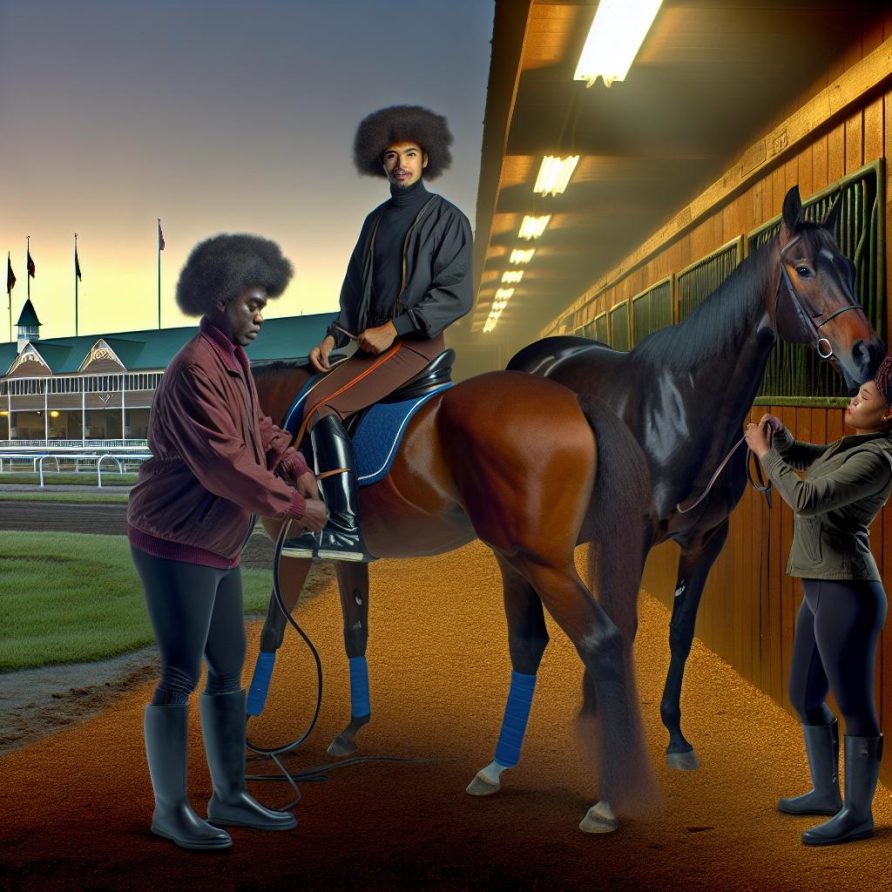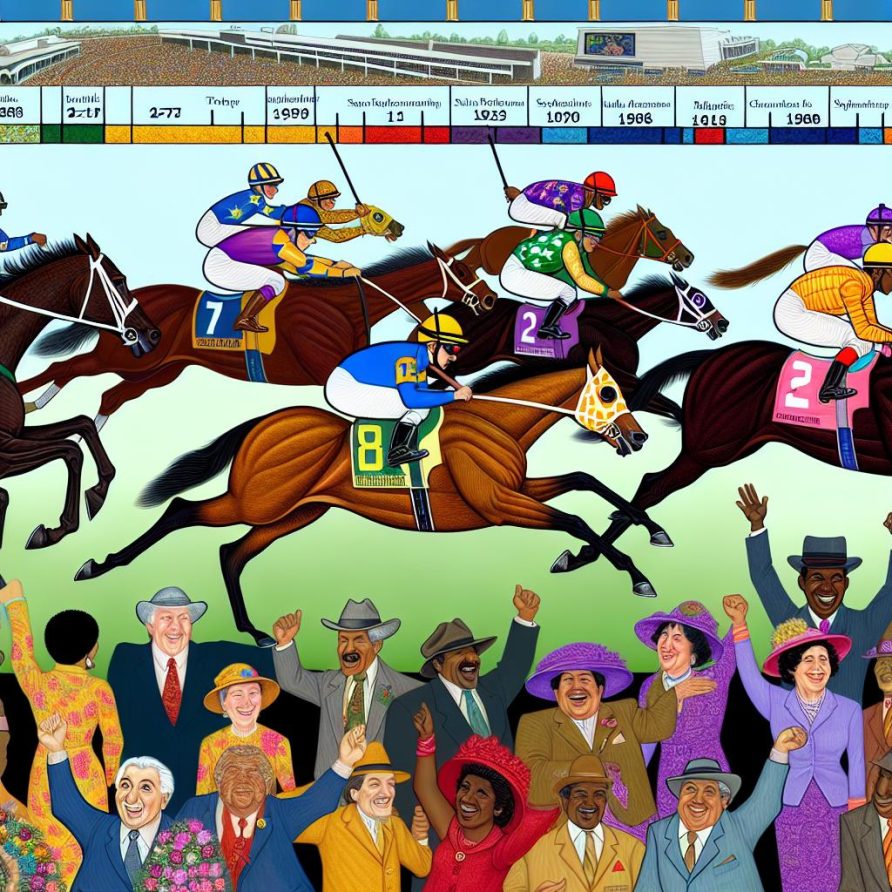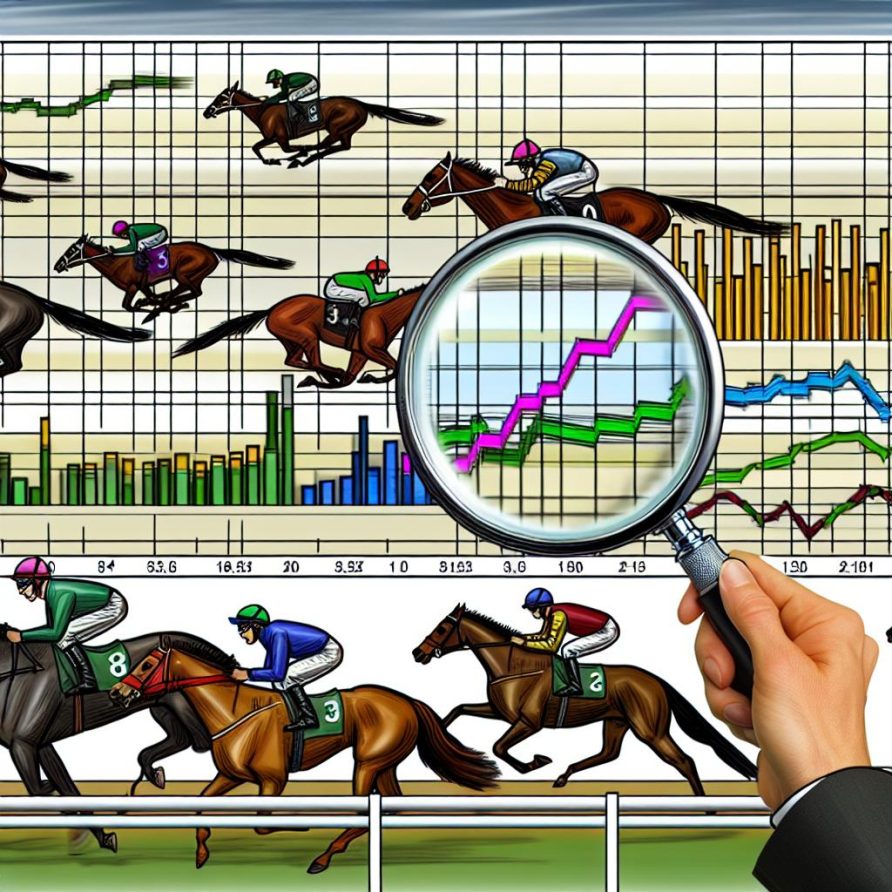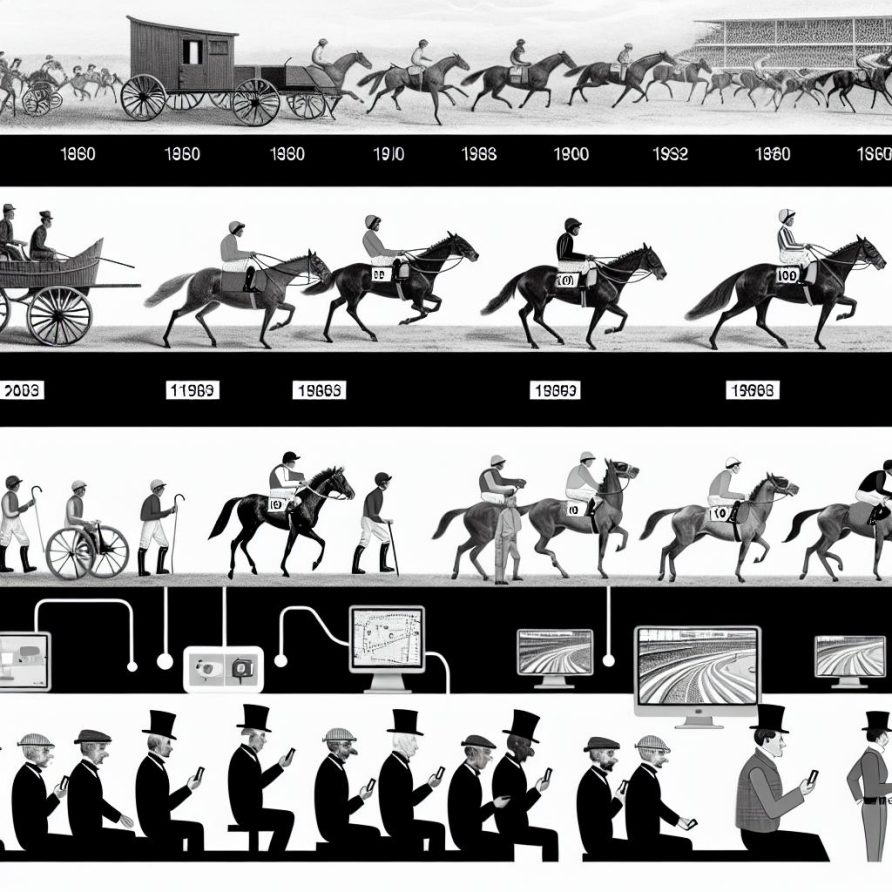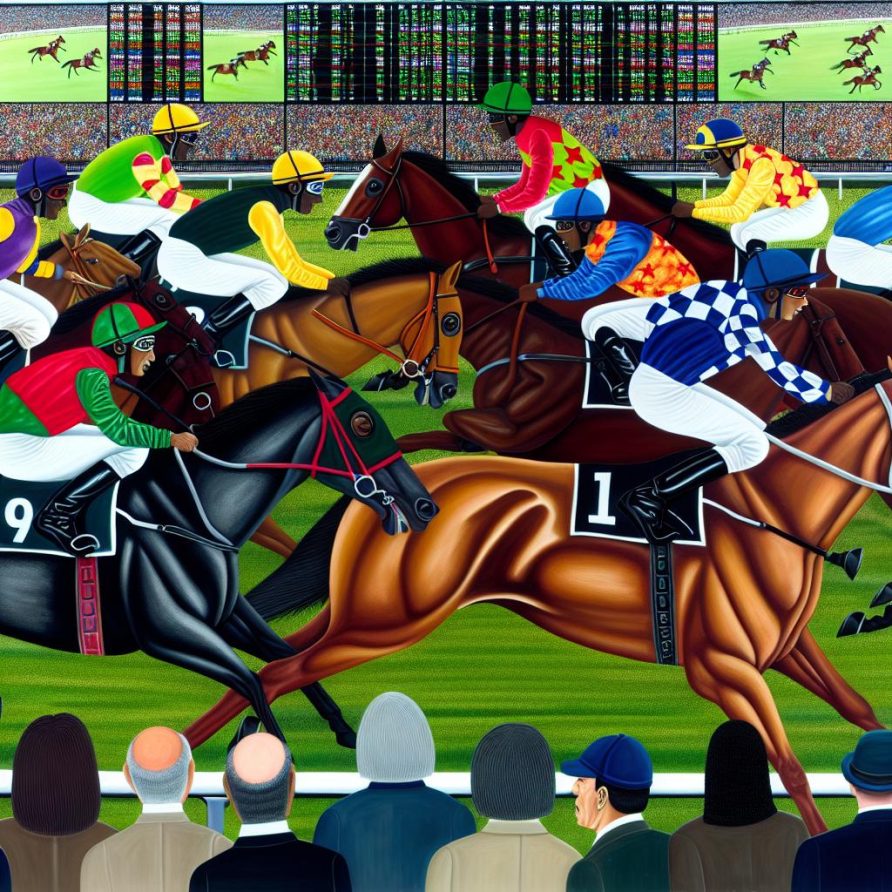The Role of Stewards in Horse Racing
Horse racing is a sport steeped in tradition and history, and at the heart of its fair conduct are the stewards. Stewards are responsible for maintaining integrity and ensuring regulations are adhered to during horse racing events.
Duties and Responsibilities
Stewards play a multifaceted role in horse racing. Primarily, they ensure that races are conducted in accordance with the established rules and guidelines set forth by the racing authorities. This involves closely monitoring races to ensure a fair competition and addressing any issues that arise.
Horse racing is a dynamic sport where various elements come into play, from the horses and jockeys to the track conditions. Consequently, the role of stewards in maintaining the smooth functioning of racing events cannot be overstated. Their presence is crucial not only in safeguarding the interests of competitors but also in preserving the sport’s reputation. A well-regulated racing environment instills confidence among participants and spectators, emphasizing the need for transparent and consistent enforcement of rules.
Pre-Race Responsibilities
Before the races begin, stewards are responsible for inspecting the track, horses, and equipment to ensure everything meets safety and regulatory standards. They also oversee the weighing-in and weighing-out procedures of jockeys to confirm they comply with the required weight limits.
The pre-race activities spearheaded by stewards are essential in setting the stage for fair play. Track inspections are conducted meticulously to identify any potential hazards or irregularities that may affect the safety and performance of the horses and jockeys. During these evaluations, stewards work closely with track officials and racecourse managers to ensure that every aspect of the racing environment adheres to the prescribed guidelines
Another crucial aspect of pre-race responsibilities involves equipment checks. Stewards, alongside veterinarians and racing officials, examine horse gear and equipment to affirm compliance. The integrity of tack and other racing paraphernalia is vital in guaranteeing that no horse receives an undue advantage or faces unnecessary risks due to faulty equipment.
Monitoring the Race
During the race, stewards are tasked with observing the event to ensure a fair and clean competition. They have the authority to review race footage, investigate incidents such as interference or foul play, and take appropriate actions if there are any breaches of the rules. Their role is crucial in determining the official results of a race.
As the race unfolds, stewards adopt a vigilant approach in scrutinizing the unfolding events. Where horse racing is concerned, split-second decisions can have a profound impact on the outcome, necessitating a keen eye for detail among stewards. Their monitoring extends beyond visual observation, incorporating state-of-the-art video analysis techniques to delve deeper into on-track occurrences.
When incidents such as interference or poor sportsmanship surface, stewards are empowered to investigate and assess the gravity of each situation. The review process is comprehensive, spanning race footage analysis, eyewitness accounts, and factual assessments to derive an impartial conclusion. Stewards must maintain a calm demeanor and uphold the principles of fairness while managing the pressure of potential contestations from stakeholders.
Post-Race Duties
After the race, stewards must oversee the weighing-in process again and verify that no rules were violated. They may also conduct inquiries and hearings if there are objections or protests from jockeys or trainers. Should any disputes or infractions occur, the stewards have the power to impose penalties, ranging from fines to suspensions or disqualifications.
Post-race proceedings are equally integral to fostering justice within the sport. The weighing-in process is revisited to reaffirm conformity with weight regulations, ensuring that all competing jockeys remain in alignment with the paved guidelines. Discrepancies, if observed, are addressed immediately to prevent any unjust impacts on the competition’s outcome.
In the event of raised objections or grievances by stakeholders, stewards are tasked with convening inquiries or hearings. These sessions serve as platforms for the collection and examination of evidence, accounts from involved parties, and deliberations that contribute to an enlightened final decision. Stewards strive for impartiality, weighing testimonies objectively to arrive at a fair verdict.
Decision-Making Authority
The authority of stewards extends to making pivotal decisions that can impact the outcomes of races and the reputations of those involved. Their judgments are based on a combination of observational skills, knowledge of the rules, and past experiences. It’s critical that these decisions are made impartially to maintain the integrity of the sport.
Appeals Process
While stewards’ decisions are generally final, there is an appeal process in place for stakeholders who wish to contest a ruling. This involves a secondary review by a higher authority within the racing governance structure, ensuring checks and balances within the decision-making process.
Stewards wield significant influence within the realm of horse racing, thanks to their decision-making capabilities. The ramifications of these decisions can be far-reaching, affecting the prestige of jockeys, trainers, and owners. Therefore, stewards are entrusted with upholding objectivity and prioritizing the sport’s interests over individual biases.
Despite the authority stewards hold, the system does incorporate a provision for appeals. By enabling stakeholders to question a decision, horse racing governance reinforces the value of accountability and due diligence. This tiered mechanism facilitates a transparent environment where stakeholders can voice concerns and seek redress through formal processes. The ensuing evaluations, conducted by higher authorities, offer a fair platform for grievances to be re-examined and addressed judiciously.
The Importance of Stewards in Horse Racing
Stewards are integral to the smooth operation and reputation of horse racing. Their role in ensuring fair competition and enforcing rules helps build public trust in the sport. Without stewards, the integrity of horse racing would be at risk, potentially leading to a loss of confidence from participants and spectators alike.
The entire spectrum of responsibilities undertaken by stewards serves to bolster the integrity of horse racing. Their unwavering commitment to upholding fairness and regulation engenders trust from both enthusiasts and skeptics. With stewards diligently working to address anomalies, enact corrective measures, and serve justice within the racing sphere, the sport remains authentic and unfeigned.
In a landscape where the lines between victory and failure can be quite transparent, stewards act as the custodians of ethical racing conduct. Their balanced approach protects the interest of all parties engaged in this exhilarating world of horse racing. For any inquiries or deeper insight into horse racing guidelines and the invaluable contribution of stewards, individuals are encouraged to explore reputable resources and authoritative sites dedicated to this illustrious sport.
For more information on horse racing rules and the role of stewards, you can visit racing authority sites or dedicated horse racing informational resources online.


